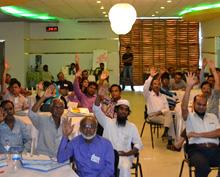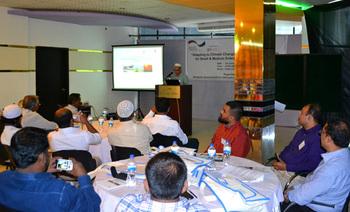Context
The impacts of climate change present a significant challenge to the private sector, especially to small and medium-sized enterprises (SMEs), which are often seen as the drivers of economic growth in Bangladesh. If their viability is threatened by climate variability and extreme weather events, the entire economy will thus suffer. The possible consequences of climate change therefore include job losses and declining economic growth. Its impacts on businesses can be direct, such as damage to buildings and locations, or the disruption of production processes if, for instance, machines overheat or staff fall sick more often.
But the impacts can also be indirect, with the increasing scarcity – and rising prices – of resources such as water and energy, the disruption of supply chains and changes in demand for produced goods. At the same time, the need to adapt to climate change may create a new demand for products and services, and prompt new business opportunities. Examples in the case of the textile industry might include technologies for energy efficiency and building insulation, or the provision of consulting services.
Objective
New approaches and instruments have been developed and tested to strengthen the capacities of the private sector to adapt to climate change.

